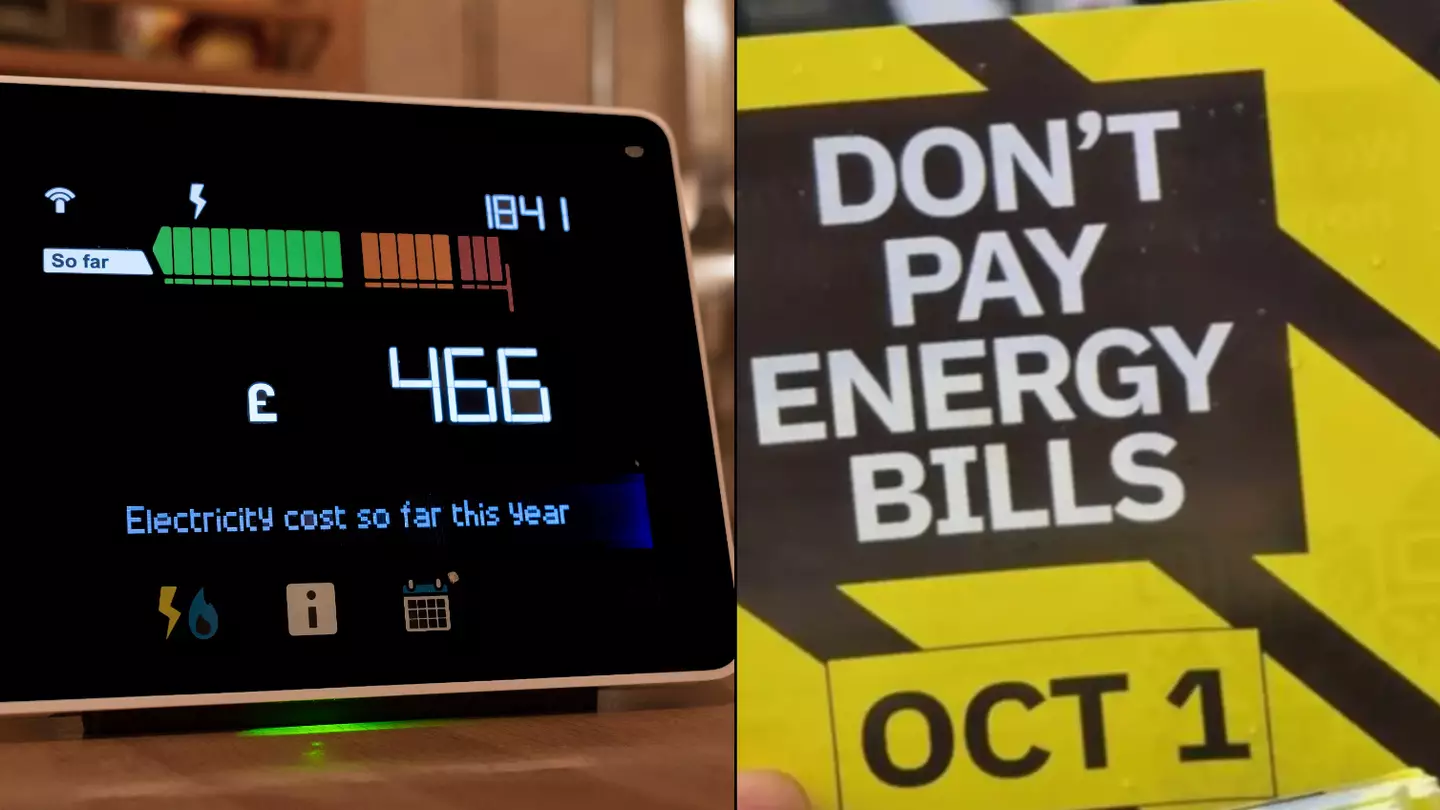
Brits’ household bills are set to hit an all-time high this autumn when the energy price cap reaches almost £3,600 in October.
Coupled with the soaring price of food and fuel, millions are finding it harder than ever to pay their bills. In fact, things are getting so tough that even the usual clichés about coffees, avocados and Netflix subscriptions are notably absent.
So it’s no surprise that people are turning to desperate measures to cope with the cost of living, and the Don’t Pay movement believe they have a solution: a mass boycott of energy bills from 1 October.
But what would actually happen if we just decided to stop paying our bills? Would a boycott really work? And has this happened before?
Advert
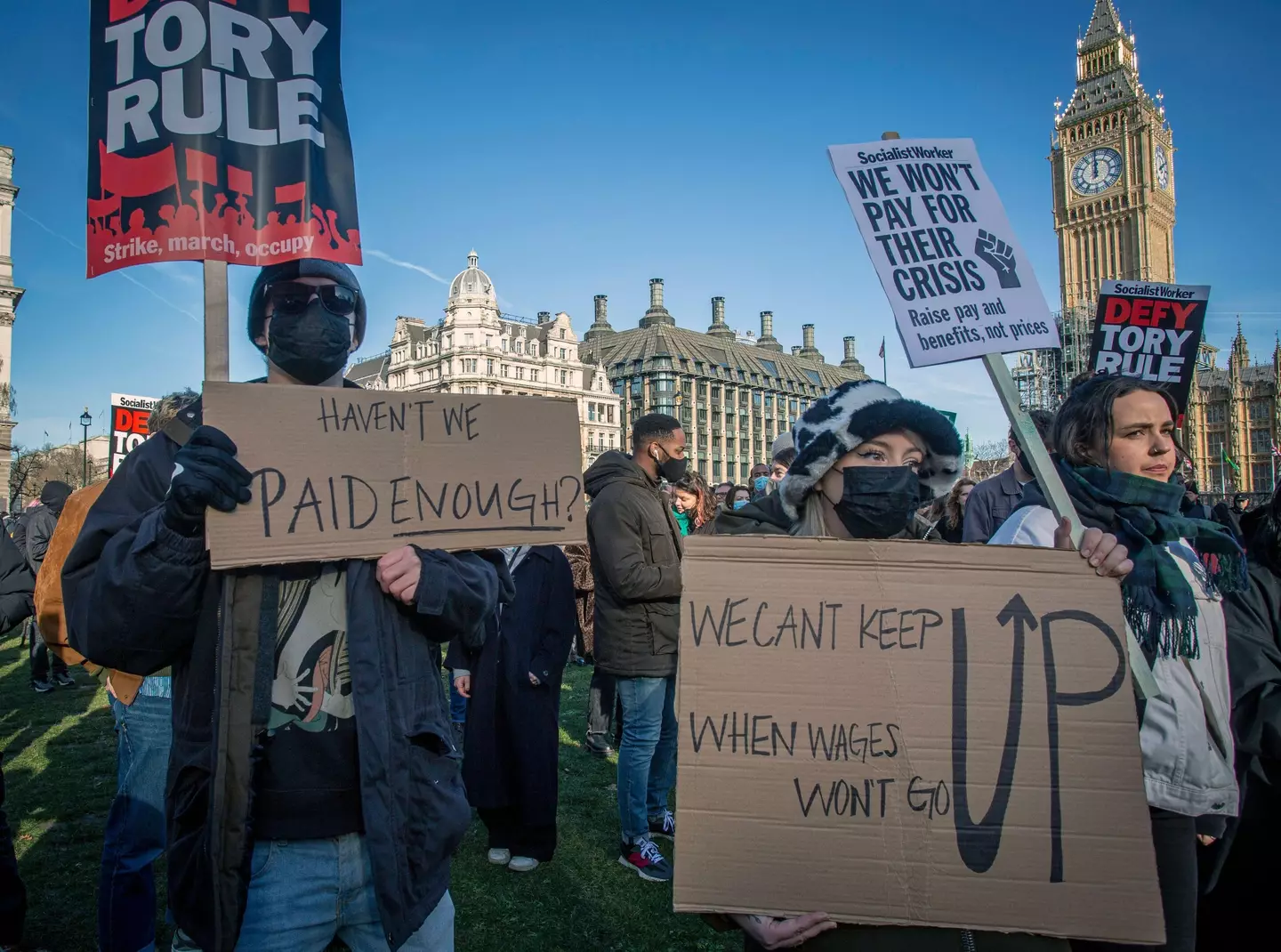
The idea behind Don't Pay is that if one million households refuse to cough up, then energy companies (some of which are enjoying record profits) will be forced to negotiate.
Jeffrey James, one of the group’s organisers, tells LADbible: “We are demanding a reduction of bills to an affordable level. This would mean that [Britain’s energy regulator] Ofgem would have to scrap the hike for October and the government has to intervene to protect people and not the profits of energy companies.”
While there have been no such assurances from Ofgem, Don’t Pay is gaining momentum with more than 100,000 pledges to strike (their goal is 1 million).
Why are people boycotting energy bills?
The predicted energy price cap this autumn is an 82 percent increase on the current cap of £1,971 – which was already 52 up on the cap of October 2021 and is expected to rise again next year.
When the new price rises come in, it could push 8.5 million households into fuel poverty by Christmas. In other words, one in three UK households could be unable to heat their homes.
This crisis comes as energy companies announced huge increases in profits since the initial price hike.
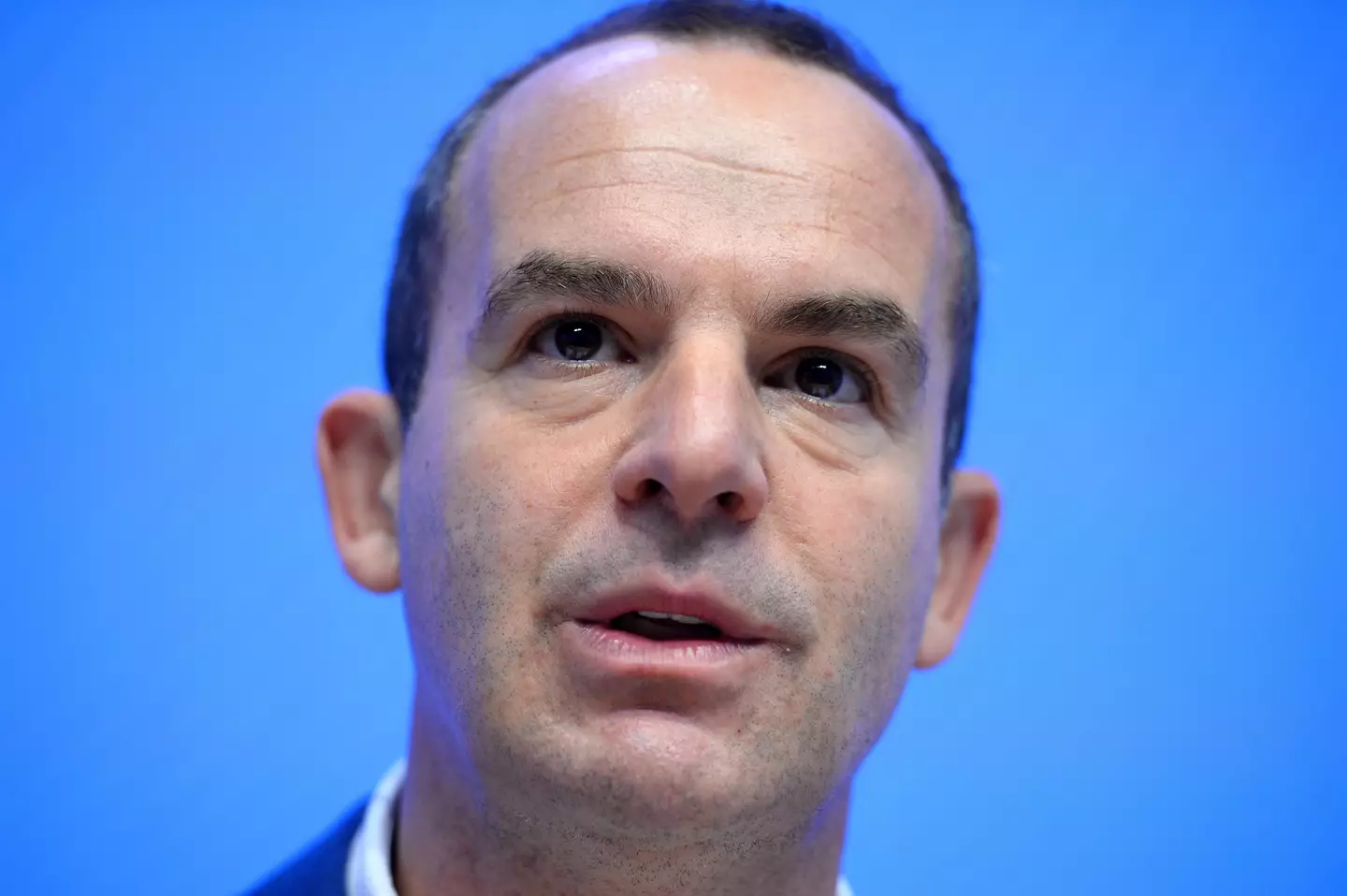
Has this ever happened before?
The movement isn’t completely unheard of. In 1989 the Thatcher government introduced the poll tax – this was effectively a tax on everyone regardless of wealth. The move caused a public outcry and a payment boycott by an estimated 17 million people – the tax was ultimately scrapped in 1991, although later replaced with council tax.
Don’t Pay has referenced that boycott as an inspiration, and money expert Martin Lewis has warned that the UK is 'heading for a poll tax moment'. But experts warn that a boycott of legally produced utilities by is very different from one against an elected body…
Could I be prosecuted if I take part?
“In the 1970s there was a boycott in Germany by some who morally objected to nuclear power,” Garry Gabison, senior lecturer of Law, Economics and Regulations at Queen Mary University, tells LADbible.
“The company took them to court and won because they had refused to pay for services legally rendered and the defendants’ claims of ‘freedom of conscience’ and freedom of speech were insufficient.
“This is likely what would happen here. Defendants could use defences around energy companies abusing a dominant position but this is rarely a defence against high prices, especially against a regulated industry.”
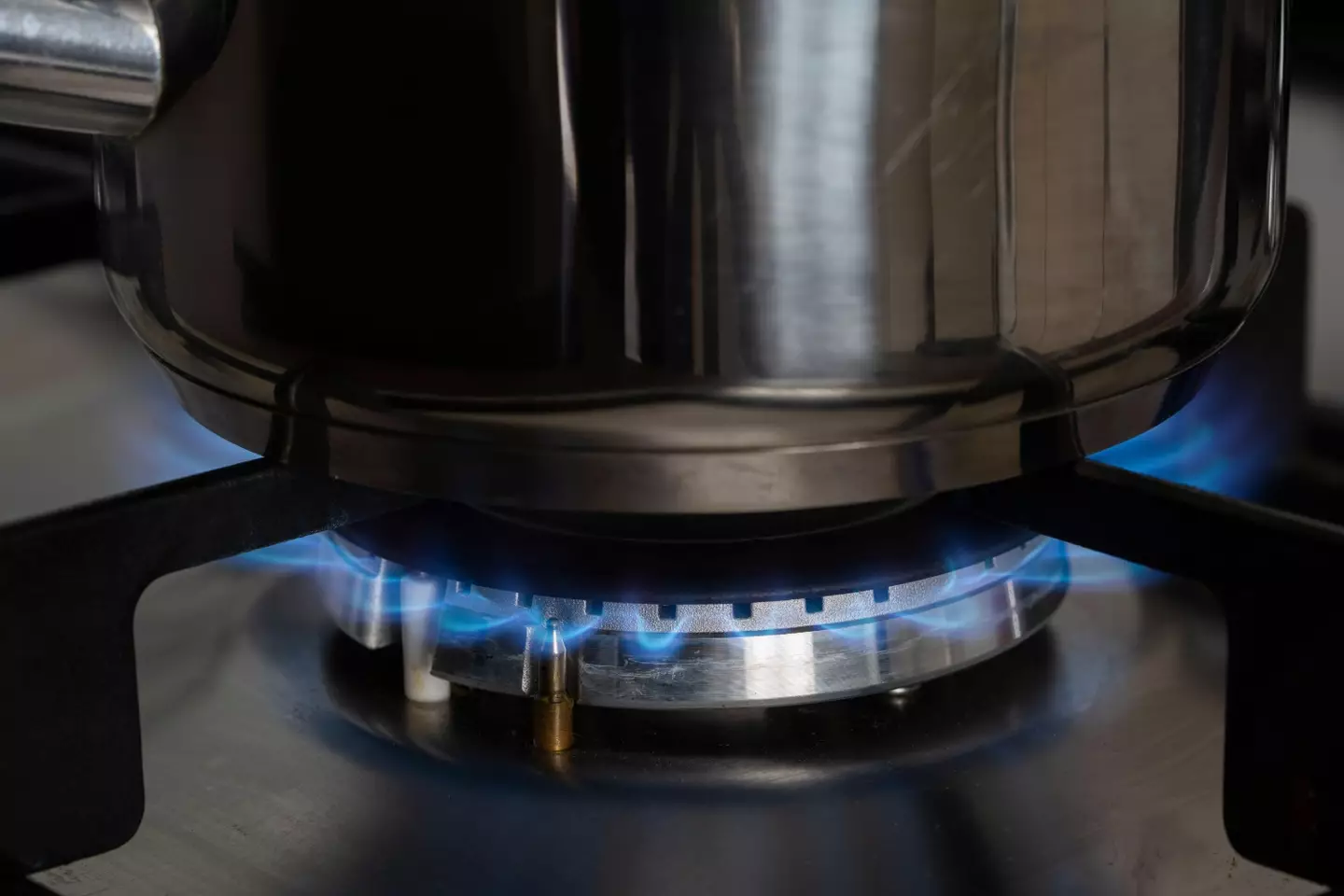
How else could companies collect their funds?
Aside from the worrying prospect of being taken to court, your debt could in theory be passed onto a debt collection agency.
“If a million people took part, energy companies would lose £100-£150million a month,” Gary Gabison explains. “Companies would then want to enforce their contracts – if for nothing else than to deter future boycotts. But because this is a boycott of services rendered, they have various ways to answer which could involve lawsuits and cutting off [customers’] energy supplies.
“Utility companies are legally obliged to work with customers to find solutions but, if someone is not cooperating, they could be required to install a pre-payment meter which would make it impossible to boycott.
“However, installing a million meters is a daunting task and going through court would be costly and time consuming. There are under 2 million lawsuits annually in the UK so courts would not appreciate an additional 1 million cases and resolutions would be likely.
“This would involve merging different cases, but it would be on the consumers to carry the costs. So while it might lead to resolutions, customers may see it differently in retrospect.”
What other consequences could there be?
There may also be further financial implications, warns Rocio Concha, director of policy and advocacy at Which?.
“If consumers decide to stop paying, it could have a serious impact on their financial situations, affect their credit rating and make it harder to take out loans, credit cards and mortgages,” he explains. “These customers would also likely be moved from direct debits to more expensive payment options.”
The government's Department for Business, Enterprise and Industrial Strategy (BEIS) has also warned that refusing to pay could push energy prices even higher, in addition to the potential impact on personal debt and credit ratings.
Don’t Pay has acknowledged the risks of taking part in the boycott: “We are asking people to make an informed choice of the individual risks of withholding payments,” says Jeffrey James. “We’ve published information on our website and are producing explainer videos but maintain that doing nothing is a greater risk.
“What we are saying is to understand the risks of striking and of doing nothing but also understand that if millions act it would change how non-payment is handled – it would become a political issue. It would drastically transform the power balances and agency of ordinary people.”
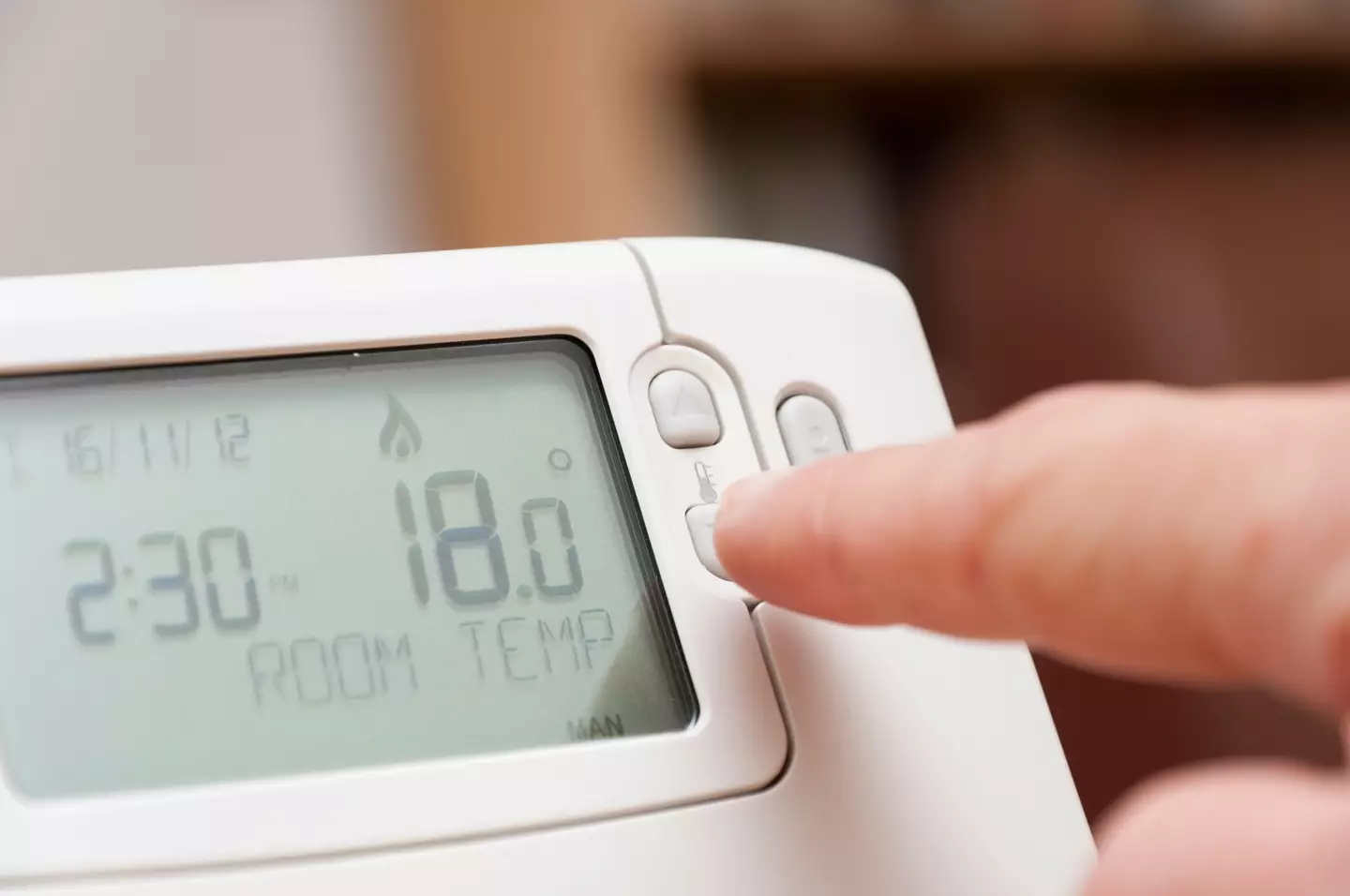
What other options are there?
Consumer charities and energy companies are encouraging customers to explore alternative methods if they can’t pay. One suggestion is to negotiate an alternative payment plan with their provider, but this fails to consider that many simply won’t have the money to pay and endlessly accruing debt is an unsustainable solution. This has led some to ask if energy companies would really be able to extract the funds owed from them.
Will the government help?
The UK won’t know who will replace Boris Johnson until September, just weeks before the increase – leading to doubts about what protections will be available.
“Given the current situation, the government is unlikely to act swiftly,” says Gabison. “Governments across Europe have attempted to address the situation with everything from subsidies to taxes, but none have come up with a sustainable solution.”
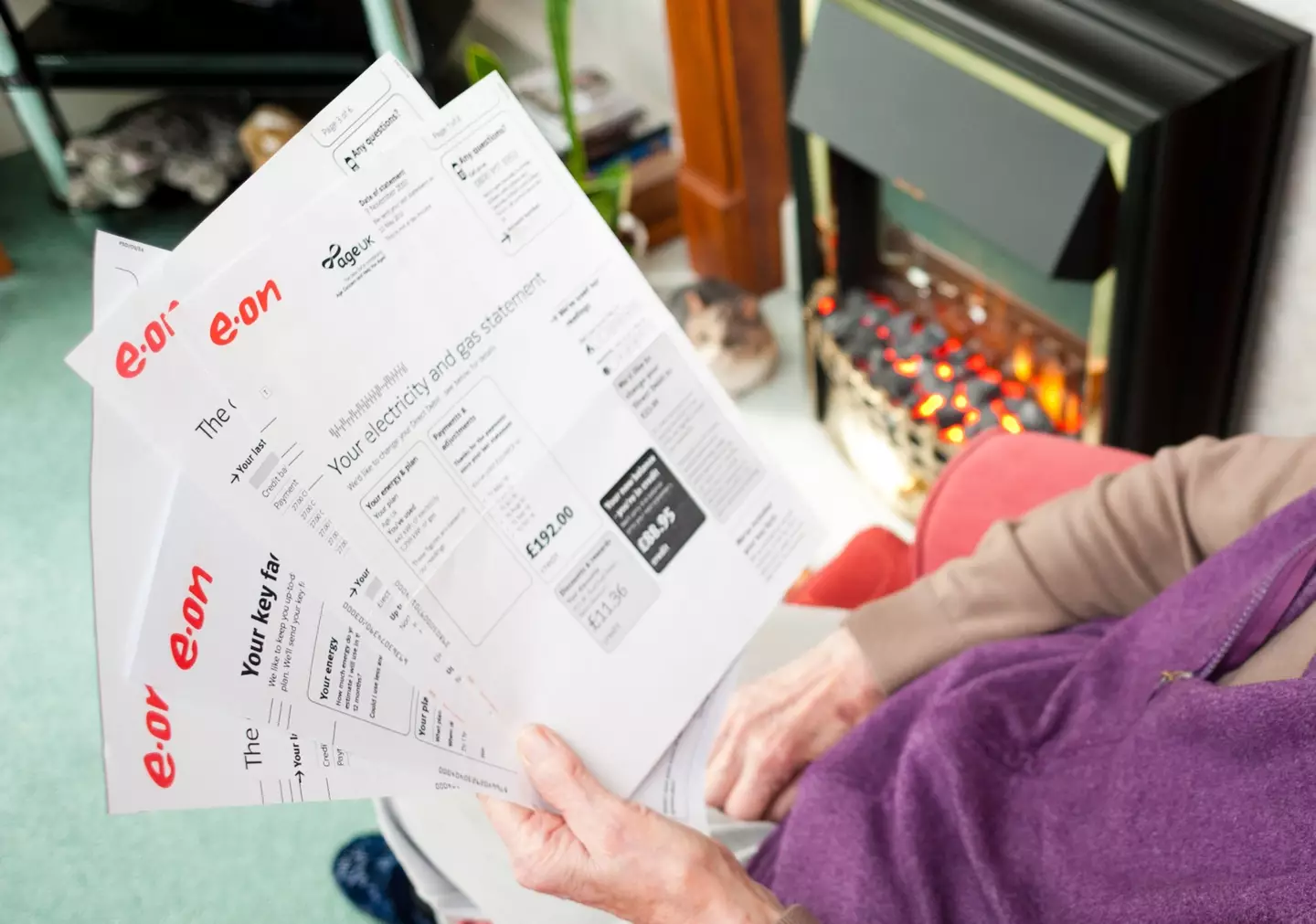
What does Ofgem say?
A spokesperson for Ofgem told LADbible: “We know that people are under huge pressure, but we do not think it’s in consumers' best interest to not pay their bills, and most leading charities and consumer groups agree.
“The knock-on effects of not paying bills can be huge for people. They could lose their direct debit discounts or be forced to move to a pre-payment meter. It could also damage their credit rating.
“Anyone struggling to pay their bills should speak to their supplier who is obliged to offer payment plans and direct customers to available support. Ofgem will ensure they provide this.”
What do the energy companies say?
British Gas, EDF Energy, EON, Npower, Scottish Power and SSE were contacted by LADbible for comment.
An OVO Energy spokesperson told LADbible: “We encourage any customer of ours who is struggling to pay for their energy to get in touch and know that we’ve supported lots of people in similar situations and we can support you too.
“There are different options – such as setting up a payment plan, which spreads the cost of energy to make it more manageable. Our dedicated team can also make sure customers receive any financial assistance from the government that they're eligible for – and explain available payment support schemes.”
